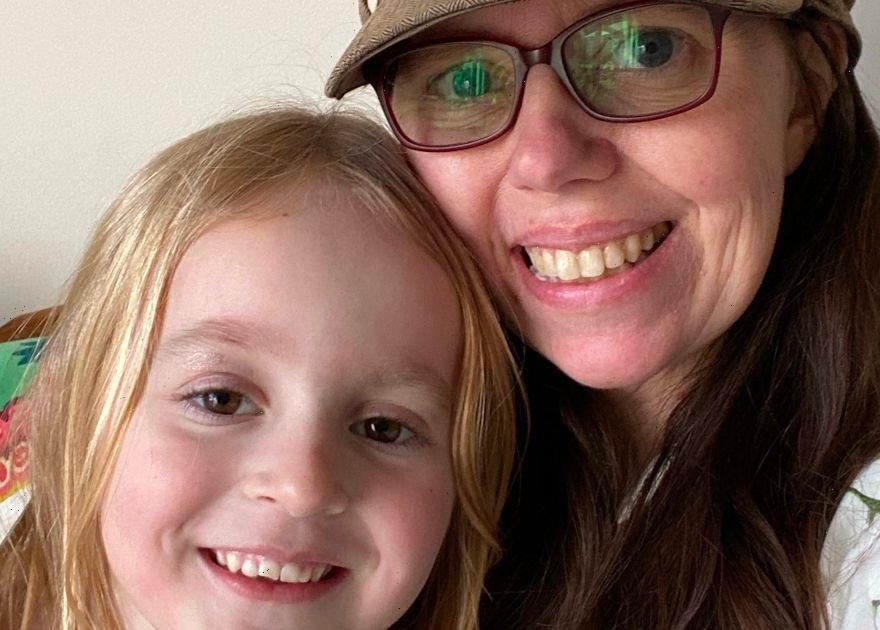A mother thought her five-year-old daughter was just a picky eater – but it turns out she has a rare eating disorder.
After she began feeding her infant daughter Felicity solid food, art therapist and Hinckley local Lyni Sargent thought she may have just been fussy.
She was later diagnosed with avoidant/restrictive food intake disorder (ARFID), a rare eating disorder that can affect up to 5% of children.
When Felicity was born, she had her umbilical cord wrapped around her neck, and it soon became apparent that she hated anything touching her throat. Issues such as this have been known to lead to food difficulties in children.
Now Lyni spoke exclusively with the Daily Star about the difficulties she’s faced raising a child that doesn’t like eating.
“Trying to explain to people that she isn't just being 'fussy', it's a genuine fear, and nobody can 'fix' her by forcing her to just try it is confronting,” she told us.

“People can do a lot of damage by exposing her to her fear when they think they are helping.
“Other fears are recognised, and people can be genuinely supportive, but when it comes to food, sometimes people don't understand, and I get that because food is a necessity, but no, Felicity won't eat that chip, or chicken nugget just because you've asked her to. All you will do is lose her trust and respect.
“Trying to calm her at parties where she has been given a plate of food, and the anxiety has been too much for her. Everywhere we go, I take a bag of 'safe foods' for her.”
As well as Felicity’s umbilical cord being wrapped around her neck, Lyni explained that there were other warning signs.
“I had an elective C section and lost quite a lot of blood so I was unable to produce milk, and Felicity had some difficulty latching on which can lead to problems with eating later on,” the mum said.
“She also suffered from really bad acid reflux and would projectile vomit after feeds. Looking back, all these early traumatic experiences with food would have contributed to her ARFID.”


When the time came to put her daughter on solid food, Lyni quickly noticed that Felicity seemed completely disinterested in eating – which eventually led to some extreme outbursts.
“Once she had a voice she would throw tantrums, I couldn’t even put certain foods on her plate. I could see the sheer panic in her face, it was like I’d put a tarantula on the table instead of spaghetti,” she explained.
Lyni said it became difficult to make sure her daughter was eating enough to maintain healthy growth. While most children put on three to four pounds per year, Felicity was barely gaining one pound per year.
She added: “I have to try not to let it bother me, otherwise I could just sit and cry and feel like I’ve failed as a mother. But it’s important to let yourself feel those feelings too. It’s a difficult balancing act.”
Growing concerned, Lyni took her daughter to a doctor, who referred Felicity to a dietician.

“She told me that at this point, all food is good food. She’s living on biscuits and pancakes at the moment, but as long as she’s getting the calories it’s a victory. Even if she just has yoghurt for dinner I’m grateful,” she said.
Lyni explains that the most important thing for her was enlisting the help of a professional nutritionist and being reassured that what was happening wasn’t her fault.
Thankfully, Felicity is growing and putting a small amount of weight on each year and she is rarely unwell.
“Unfortunately, there are no services to help her overcome her fear, and we can't afford to go private, so I guess it's a case of waiting and hoping that she won't have any lasting effects," she shared.
“My main concerns are that she is growing healthily and getting enough nutrients and calories.

"She does take a vitamin and mineral tablet each day, we've had to crush the tablet and mix it in with melted chocolate to make our own ‘special chocolate drops’ so that she will take it.
“I am also worried about bullying from peers at lunchtime as her lunch box is very different! And what will happen when she goes to her friend’s house for tea after school, will it cause her anxiety and she will miss out on friendships because of her fear of food.”
Lyni advises anyone out there struggling with an ARFID child not to bear any blame.
She provides person-centred art therapy with Starleng – aimed to improve mental well-being and general emotional health for anyone struggling with anxiety, depression, or coping with day-to-day stresses.
To stay up to date with all the latest news, make sure you sign up for one of our newsletters here.
Source: Read Full Article
